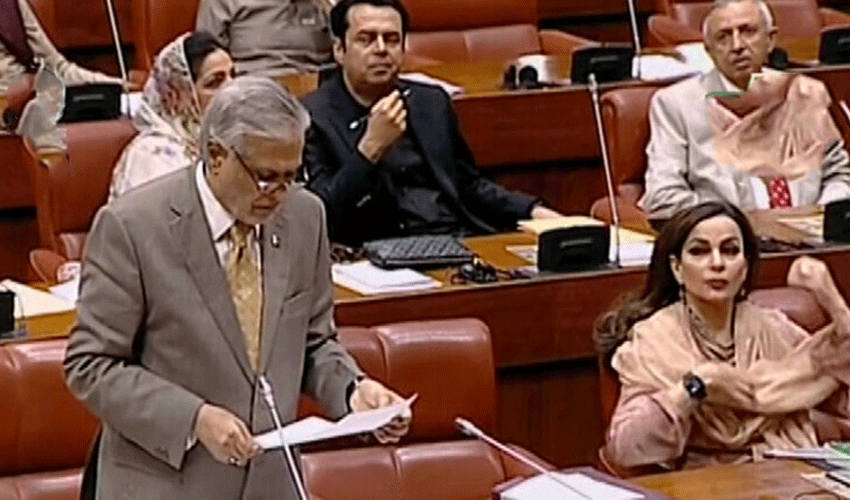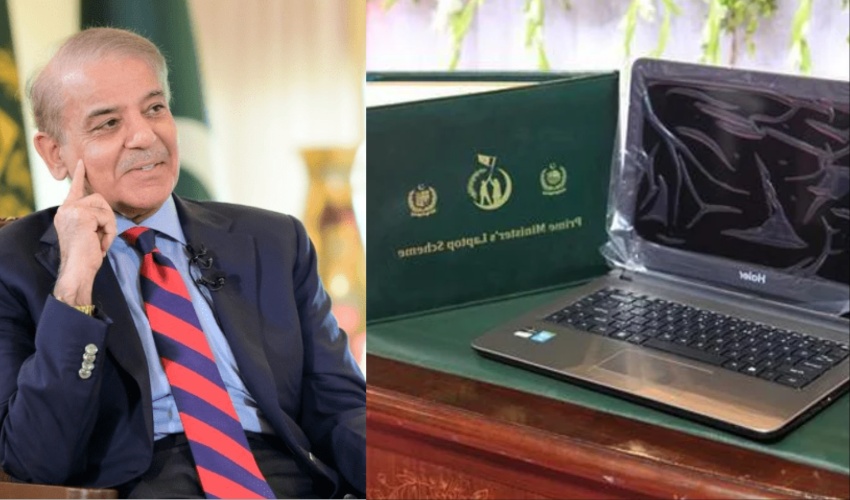The Senate of Pakistan on Friday unanimously passed a resolution rejecting Indian allegations linking Pakistan to the recent Pahalgam attack in Indian-occupied Jammu and Kashmir.
The resolution, tabled by Deputy Prime Minister and Foreign Minister Ishaq Dar, categorically condemned all forms of terrorism, including the April 22 incident in Pahalgam, which resulted in the deaths of several Indian tourists. However, it denounced what it termed as India's "baseless attempts" to implicate Pakistan without evidence, calling the move provocative and irresponsible.
Presiding over the session, Chairman Senate Yousaf Raza Gillani oversaw a rare display of unity among treasury and opposition benches, with all parliamentary parties backing the government’s stance.
The resolution not only rejected the Indian narrative but warned that any aggression against Pakistan would invite a "befitting response."
“Pakistan strongly condemns the Pahalgam incident but equally condemns India's habit of assigning blame to Pakistan without investigation,” the resolution stated. “In case of any aggression, Pakistan will respond with full force. India must be held accountable for its own involvement in destabilising activities inside Pakistan and other countries.”
National security response
Foreign Minister Ishaq Dar briefed the House on the outcomes of the National Security Committee (NSC) meeting held in response to Indian actions post-Pahalgam attack. He told the Senate that India’s unilateral suspension of the Indus Waters Treaty—a decades-old agreement mediated by the World Bank—was tantamount to a declaration of war.
“Water is the lifeline for our 240 million people. Any attempt to weaponize it will not go unanswered,” Dar said.
He said India’s decision to close the Attari-Wagah border was reciprocated by Pakistan, which also revoked all visas issued to Indian citizens under the SAARC visa exemption scheme—excluding Sikh pilgrims.
Further retaliatory measures announced included:
-
Closure of Pakistan’s airspace to Indian airlines.
-
Declaration of Indian defence attaches as persona non grata, with orders to leave by April 30.
-
Reduction of Indian consulate staff from 55 to 30 in response to similar Indian action.
-
Immediate halt to all trade with India, including trade through third countries.
Dar noted that these steps had been taken after careful deliberation by the NSC and in consultation with allied departments.
Diplomatic engagements
The Foreign Minister stated that efforts were underway to inform the global community about the escalating situation.
“Yesterday, ambassadors of 26 countries were summoned and briefed at the Foreign Office. Today, the remaining will be briefed as well,” he said, adding that he would speak with the Saudi Foreign Minister later in the evening.
Dar, who canceled a planned visit to Bangladesh due to the prevailing situation, also shared details of his recent visit to Kabul. He said that during his meeting with Afghan Foreign Minister Amir Khan Muttaqi, he had secured assurances that Afghan soil would not be used for activities against Pakistan.
Opposition shows solidarity
Opposition Leader in the Senate, Senator Shibli Faraz, endorsed the resolution, calling for unity in the face of external threats.
“This is not the time for political point-scoring. Our leader has always said that the homeland comes before our lives,” Faraz said. “India has always sought to malign Pakistan, especially under the leadership of a government inspired by RSS ideology.”
He criticised India for fomenting unrest in Balochistan and backing subversive elements inside Pakistan, citing the case of Indian spy Kulbhushan Jadhav as evidence.
However, Faraz also took the opportunity to criticise the government’s handling of domestic affairs, particularly the aftermath of the controversial 2024 general elections.
“There cannot be true national unity when the leader of the country’s largest political party has been jailed for over 600 days. Political victimisation weakens our internal front,” he said.
Cross-party support for national integrity
Senator Aimal Wali Khan, representing the Awami National Party (ANP), supported the government's response to Indian aggression, calling for a collective stance on national sovereignty.
“We may have ideological differences, but when it comes to the integrity of Pakistan, we are one,” he said, adding that India’s “shameful acts” and propaganda would be countered at every level.
He also used the occasion to urge the government to address longstanding grievances of smaller provinces in a manner similar to the attention given to Sindh over the Indus Water Treaty.
While the Senate session remained largely focused on India’s actions and Pakistan’s response, opposition lawmakers did not hold back from raising concerns about the political climate at home. Shibli Faraz lamented the absence of representation from Khyber Pakhtunkhwa and called for fair elections and judicial reforms as prerequisites for long-term stability.
“As long as Imran Khan is in jail, stability will remain elusive. Political prisoners should not be treated as terrorists,” Faraz said.
Message to the world
The unanimous adoption of the resolution was seen as a clear signal to India and the international community that Pakistan stands united against external threats and false flag operations.
“If anyone looks at Pakistan with a malicious eye, they will be answered in a language they understand,” Ishaq Dar warned, echoing past rhetoric during moments of crisis with India.
The resolution also reiterated Pakistan’s commitment to peace but underlined that this should not be mistaken for weakness.


























